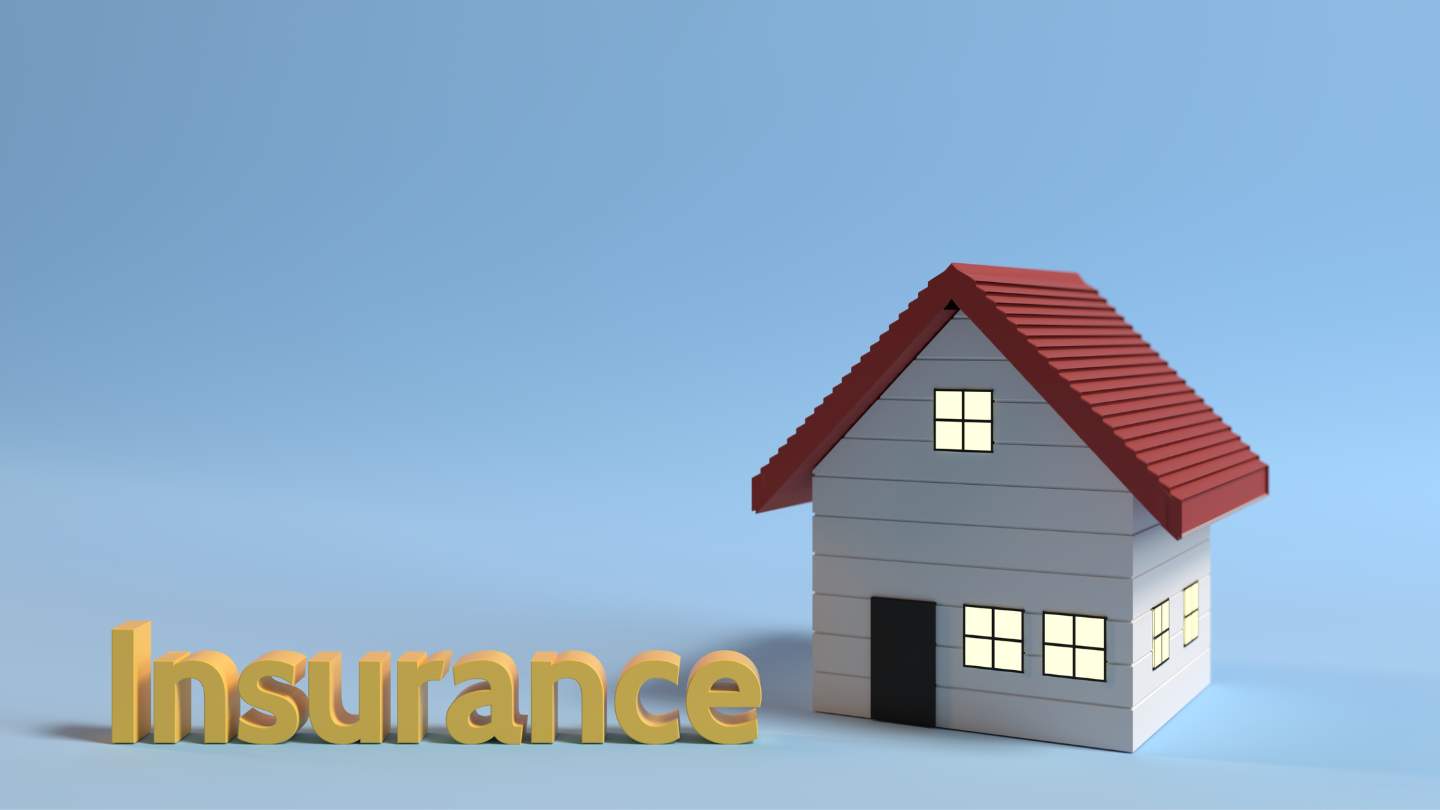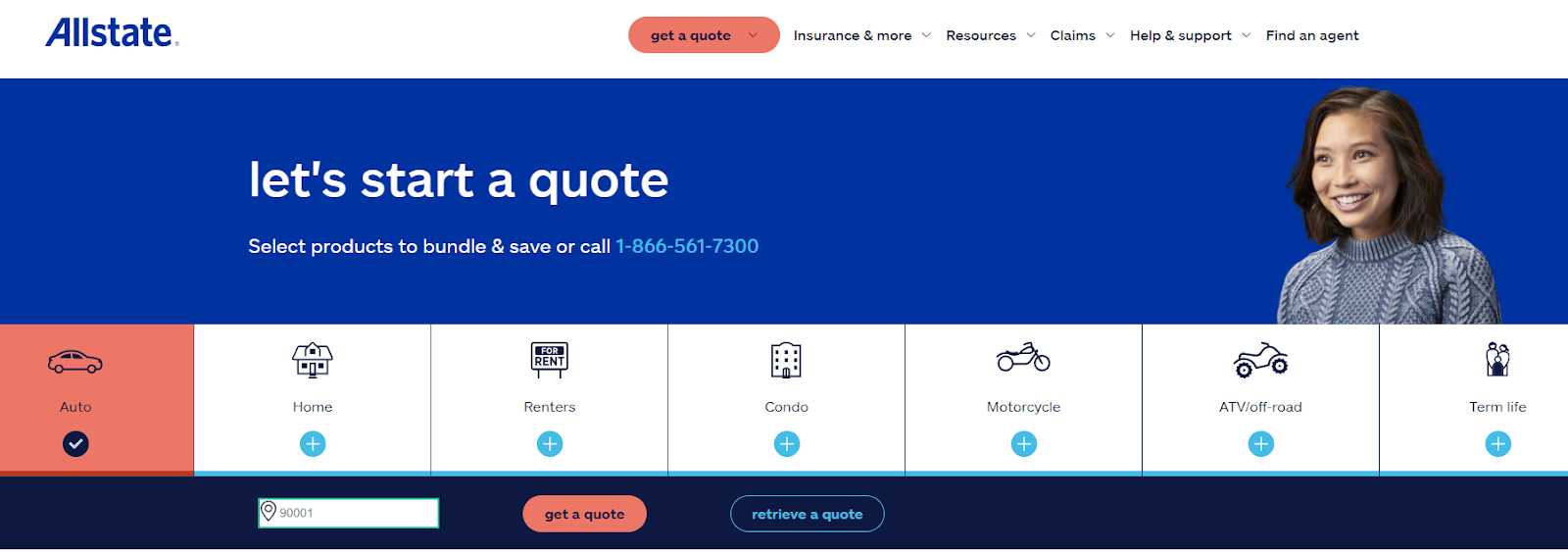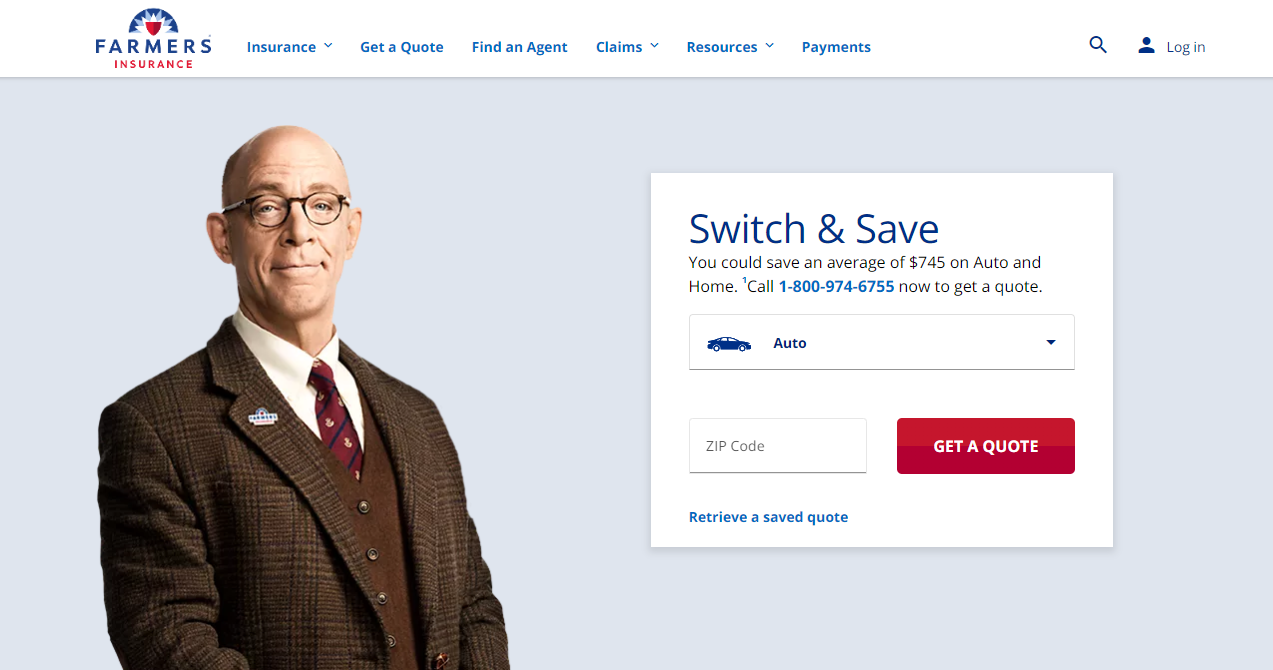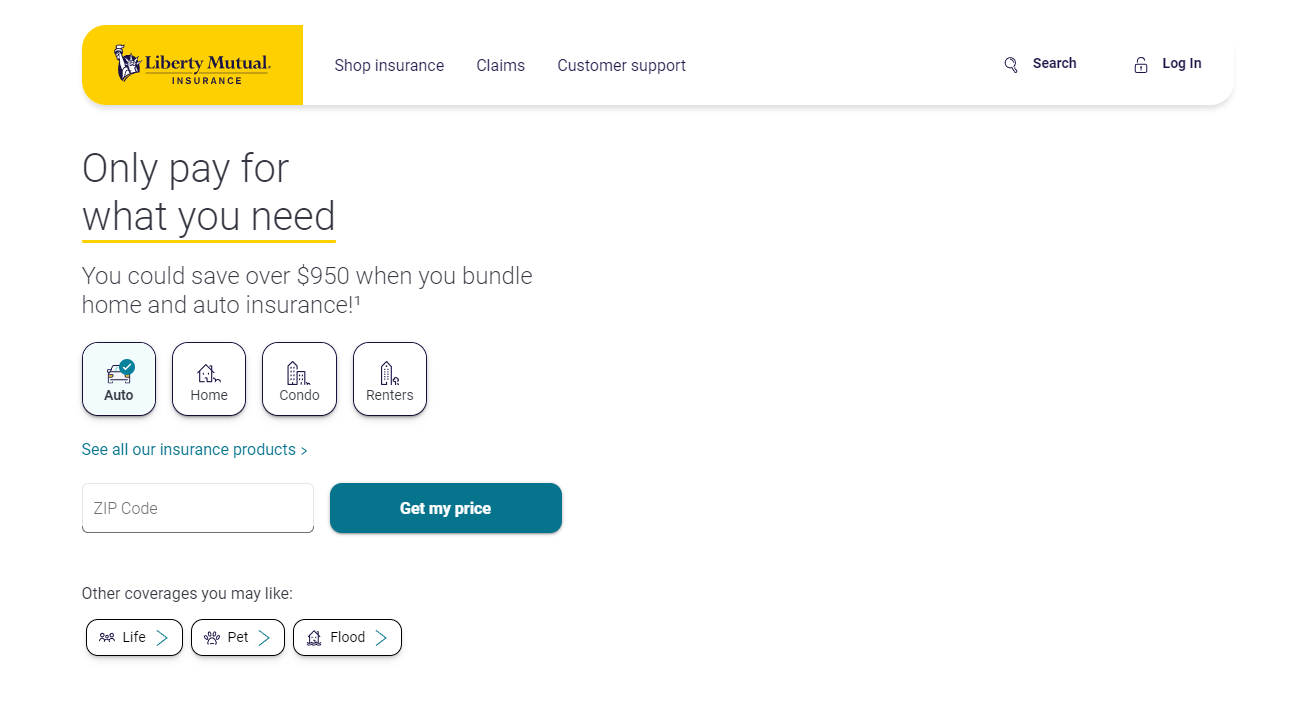
Best Home Insurance Companies of August 2024

When it comes to protecting your home, finding the right homeowners insurance is crucial. With numerous options available, it can be overwhelming to choose the best policy that suits your needs. In this blog, we will explore the top six home insurance companies for August 2024, providing insights into their strengths, weaknesses, coverage areas, and why they stand out.
Additionally, we'll cover other companies worth considering, how to find the best home insurance in specific scenarios, and what makes homeowners insurance so expensive. By the end, you'll have a comprehensive understanding of how to choose the right policy for your home.
The Best Home Insurance Companies of August 2024
1.State Farm

Pros:
- Extensive network of agents across the country
- Offers a variety of discounts, including multi-policy and home safety features
- Strong financial stability and reputation
Cons:
- Higher premiums compared to some competitors
- Limited customization options for policies
Why It's the Best: State Farm is a household name in the insurance industry, known for its excellent customer service and comprehensive coverage options. Their policies are particularly appealing to those who value working with local agents and need a reliable insurer with a long-standing reputation.
Where It’s Served: State Farm provides home insurance in all 50 states, making it a convenient option for homeowners across the country.
2. Allstate

Pros:
- Comprehensive digital tools and mobile app
- Wide range of coverage options and add-ons
- Multiple discount opportunities
Cons:
- Higher premiums in certain regions
- Mixed customer service reviews
Why It's the Best: Allstate shines with its extensive digital tools, allowing customers to manage their policies and claims easily. Their coverage options are versatile, making it easy for homeowners to tailor their policies to specific needs.
Where It’s Served: Allstate operates nationwide, with a strong presence in urban and suburban areas.
3. USAA

Pros:
- Exceptional customer service ratings
- Exclusive benefits for military members and their families
- Competitive rates with high-value coverage
Cons:
- Limited to military members, veterans, and their families
- Fewer local branches compared to larger competitors
Why It's the Best: USAA is highly regarded for its customer satisfaction, particularly among military personnel. Their policies are well-suited for those seeking reliable coverage with excellent support tailored to the military community.
Where It’s Served: USAA is available to eligible members in all 50 states and internationally.
4. Lemonade

Pros:
- Easy-to-use mobile app with instant coverage
- Low premiums, especially for tech-savvy homeowners
- Charitable donations through the Lemonade Giveback program
Cons:
- Limited to urban areas in some states
- Less coverage options compared to traditional insurers
Why It's the Best: Lemonade is a disruptor in the insurance industry, offering a user-friendly, tech-driven approach to homeowners insurance. Their low premiums and seamless digital experience make it ideal for younger homeowners and those comfortable with managing their insurance online.
Where It’s Served: Lemonade is available in over 20 states, with a focus on urban markets.
5. Amica Mutual

Pros:
- High customer satisfaction ratings
- Dividend policies that return a portion of premiums
- Wide range of coverage options
Cons:
- Higher premiums for non-dividend policies
- Fewer discounts compared to competitors
Why It's the Best: Amica Mutual is known for its excellent customer service and unique dividend policies, which allow policyholders to receive a portion of their premiums back. This makes it a great option for those who value long-term savings.
Where It’s Served: Amica serves homeowners across most of the United States, with a particularly strong presence in the Northeast.
6. Farmers Insurance

Pros:
- Extensive policy customization options
- Strong claims management and customer service
- Multiple discount programs
Cons:
- Premiums can be higher in some regions
- Limited online tools compared to competitors
Why It's the Best: Farmers Insurance offers robust policy customization, making it a great choice for homeowners with specific coverage needs. Their customer service and claims management are also highly rated, ensuring a smooth experience when filing a claim.
Where It’s Served: Farmers Insurance is available in most states, with a significant presence in the western United States.
Other Home Insurance Companies to Consider
Progressive

Pros:
- Competitive rates with various discounts
- Bundling options with auto insurance
- Strong digital tools for policy management
Cons:
- Limited local agent presence
- Mixed reviews on claims handling
Why It's the Best: Progressive is well-known for its competitive pricing and bundling discounts, making it a top choice for homeowners looking to save money by combining their insurance policies.
Where It’s Served: Progressive offers home insurance nationwide, with a focus on online services.
Liberty Mutual

Pros:
- Wide range of coverage options
- Strong financial stability
- Customizable policy add-ons
Cons:
- Premiums can be higher in some areas
- Average customer service ratings
Why It's the Best: Liberty Mutual provides a broad selection of coverage options, allowing homeowners to tailor their policies to meet specific needs. Their financial strength ensures reliable coverage and claim payments.
Where It’s Served: Liberty Mutual operates in all 50 states, with a strong presence in both urban and rural areas.
How to Find the Best Home Insurance in Five Common Scenarios
1. First-Time Homebuyers
Buying your first home is an exciting milestone, but it also comes with the responsibility of protecting your investment. As a first-time homebuyer, you may not be familiar with all the nuances of homeowners insurance, so it's essential to choose a company that caters to your specific needs.
- Look for New Homeowner Discounts: Many insurance companies offer discounts specifically for first-time buyers. These discounts can help reduce your premium, making it easier to afford comprehensive coverage without breaking the bank.
- Seek Out Educational Resources: First-time buyers should choose insurers that provide educational materials or tools to help you understand your coverage options. Companies that offer online guides, videos, or even access to insurance agents who can walk you through your policy options are valuable resources.
- Consider Bundling Options: If you’re also purchasing auto or life insurance, look for insurers that offer bundling discounts. Combining multiple policies with one provider can lead to significant savings and simplify your insurance management.
2. High-Value Homes
If you own a luxury property or a home with a high market value, standard homeowners insurance may not provide sufficient coverage. High-value homes require specialized insurance policies that account for their unique features and higher replacement costs.
- Insurers Specializing in High-Value Homes: Companies like Chubb or AIG Private Client Group are known for offering specialized policies for high-value homes. These insurers provide higher coverage limits and options like cash settlements, ensuring you can rebuild your home to its original standard without financial strain.
- Coverage for Luxury Items: High-value home insurance often includes coverage for luxury items like fine art, jewelry, or antiques, which may not be adequately covered under a standard policy.
- Enhanced Liability Protection: With a high-value home, you may also need higher liability coverage to protect your assets from potential lawsuits. Consider policies that offer expanded liability protection, including umbrella insurance options.
3. Homes in Disaster-Prone Areas
If your home is located in an area prone to natural disasters, such as hurricanes, earthquakes, or wildfires, finding the right insurance is critical. Not all standard homeowners policies cover these perils, so you may need additional endorsements or specialized coverage.
- Companies with Strong Disaster Coverage: Look for insurers with a proven track record of handling claims related to natural disasters. Companies like Nationwide and Allstate are known for offering comprehensive disaster coverage, including specific endorsements for hurricanes, floods, and earthquakes.
- Endorsements and Riders: Ensure your policy includes endorsements or riders for the specific risks in your area. For example, if you live in a flood zone, you’ll need flood insurance, which is typically a separate policy or an add-on to your homeowners insurance.
- Evaluate Claims Handling: In disaster-prone areas, the speed and efficiency of the claims process are crucial. Research how well an insurer handles large-scale disaster claims, including their response times and customer satisfaction during such events.
4. Vacation Homes
Owning a vacation home comes with its own set of insurance challenges, especially if the property is vacant for extended periods or rented out to others.
- Tailored Policies for Second Homes: Look for insurers that offer specialized policies for vacation homes. These policies typically cover the unique risks associated with second homes, such as vandalism, theft, or damage while the property is unoccupied.
- Vacant Property Coverage: If your vacation home is unoccupied for long periods, consider vacant property insurance. This type of coverage protects your home when it’s empty, which standard homeowners insurance may not fully cover.
- Rental Endorsements: If you rent out your vacation home, you’ll need a policy that includes rental endorsements. These endorsements cover the specific risks associated with short-term rentals, such as liability for guest injuries or damage caused by tenants.
5. Older Homes
Older homes often have unique charm and history, but they also come with additional insurance considerations, particularly if they have outdated infrastructure or historic features.
- Coverage for Historic Properties: If your home is designated as historic, you may need a specialized insurance policy that covers the cost of restoring the home to its original state using appropriate materials and methods. Companies like PURE Insurance offer policies tailored to historic homes.
- Endorsements for Outdated Infrastructure: Older homes may have outdated plumbing, electrical systems, or roofs that don’t meet current building codes. Look for insurers that offer specific endorsements for these issues, ensuring you’re covered in the event of a claim related to outdated infrastructure.
- Consider Replacement Cost vs. Actual Cash Value: When insuring an older home, it’s important to understand the difference between replacement cost and actual cash value coverage. Replacement cost policies cover the full cost of rebuilding your home, while actual cash value policies factor in depreciation, which may leave you underinsured.
How to Compare Home Insurance Companies
1. Evaluate Coverage Options
Compare the core coverage types, such as dwelling, liability, and personal property, to ensure you’re getting comprehensive protection. Look for policies that match your specific needs, whether it’s for standard coverage or more specialized protection.
2. Check Customer Reviews and Ratings
Customer satisfaction ratings and reviews on platforms like J.D. Power and Trustpilot can give you insight into the service quality of different insurers. High ratings typically indicate better customer service and claims handling.
3. Consider Financial Stability
An insurer’s financial stability is crucial. Check ratings from agencies like A.M. Best or Moody’s to ensure the company can pay out claims, even in large-scale disaster scenarios.
4. Look for Discounts
Discounts can significantly lower your premiums. Explore options like multi-policy, home safety, and loyalty discounts to maximize savings. Many insurers offer substantial discounts for bundling home and auto insurance.
5. Review the Claims Process
A smooth claims process is essential in times of need. Choose insurers known for their quick response times, easy claims filing, and fair settlements. Look for companies that offer multiple claims filing options, including online and mobile app submissions.
Why Is Homeowners Insurance So Expensive?
Homeowners insurance can be costly due to various factors, including the home's location, age, and construction type, as well as the frequency of natural disasters in the area. Additionally, the rising costs of construction materials and labor contribute to higher premiums. Insurers also factor in the homeowner's credit score, claims history, and the amount of coverage required.
Average Cost of Homeowners Insurance Per Year
Here’s the table with a citation added for the average cost of homeowners insurance per state:
|
State |
Average Annual Cost |
|
Alabama |
$1,455 |
|
Alaska |
$1,245 |
|
Arizona |
$1,325 |
|
Arkansas |
$1,550 |
|
California |
$1,015 |
|
Colorado |
$1,865 |
|
Connecticut |
$1,365 |
|
Delaware |
$1,025 |
|
Florida |
$2,045 |
|
Georgia |
$1,485 |
|
Hawaii |
$985 |
|
Idaho |
$1,105 |
|
Illinois |
$1,235 |
|
Indiana |
$1,155 |
|
Iowa |
$1,225 |
|
Kansas |
$1,665 |
|
Kentucky |
$1,345 |
|
Louisiana |
$2,185 |
|
Maine |
$1,015 |
|
Maryland |
$1,085 |
|
Massachusetts |
$1,355 |
|
Michigan |
$1,195 |
|
Minnesota |
$1,635 |
|
Mississippi |
$1,505 |
|
Missouri |
$1,485 |
|
Montana |
$1,395 |
|
Nebraska |
$1,695 |
|
Nevada |
$1,175 |
|
New Hampshire |
$1,025 |
|
New Jersey |
$1,145 |
|
New Mexico |
$1,445 |
|
New York |
$1,395 |
|
North Carolina |
$1,365 |
|
North Dakota |
$1,485 |
|
Ohio |
$1,115 |
|
Oklahoma |
$1,865 |
|
Oregon |
$1,075 |
|
Pennsylvania |
$1,155 |
|
Rhode Island |
$1,645 |
|
South Carolina |
$1,495 |
|
South Dakota |
$1,365 |
|
Tennessee |
$1,475 |
|
Texas |
$1,975 |
|
Utah |
$1,045 |
|
Vermont |
$1,025 |
|
Virginia |
$1,195 |
|
Washington |
$1,155 |
|
West Virginia |
$1,155 |
|
Wisconsin |
$1,145 |
|
Wyoming |
$1,495 |
Source: The average annual cost data is compiled from the Insurance Information Institute.
Choosing the right home insurance company is essential for protecting your most valuable asset—your home. By understanding the pros and cons of the top providers, considering your specific needs, and comparing policies, you can find the best coverage at the best price. At InsureHopper, our advanced engine simplifies this process, allowing you to quickly compare quotes and find the perfect policy without the hassle. Whether you're a first-time buyer or a seasoned homeowner, InsureHopper makes it easy to secure the protection you need.
Ready to find the best home insurance for your needs? Visit InsureHopper today and start comparing quotes from top home insurance carriers in your area. Save time, money, and hassle-free with our fast, reliable service.
FAQs
What is homeowners insurance?
Homeowners insurance is a policy that provides financial protection against damage to your home and personal property, as well as liability coverage in case someone is injured on your property.
What does homeowners insurance cover?
Homeowners insurance typically covers damage to the structure of your home, personal belongings, liability for injuries, and additional living expenses if you're temporarily unable to live in your home.
How much does homeowners insurance cost?
The cost of homeowners insurance varies depending on factors like location, home value, coverage amount, and the insurer. On average, it can range from $850 to $2,000 per year, depending on the state and specific risk factors.
